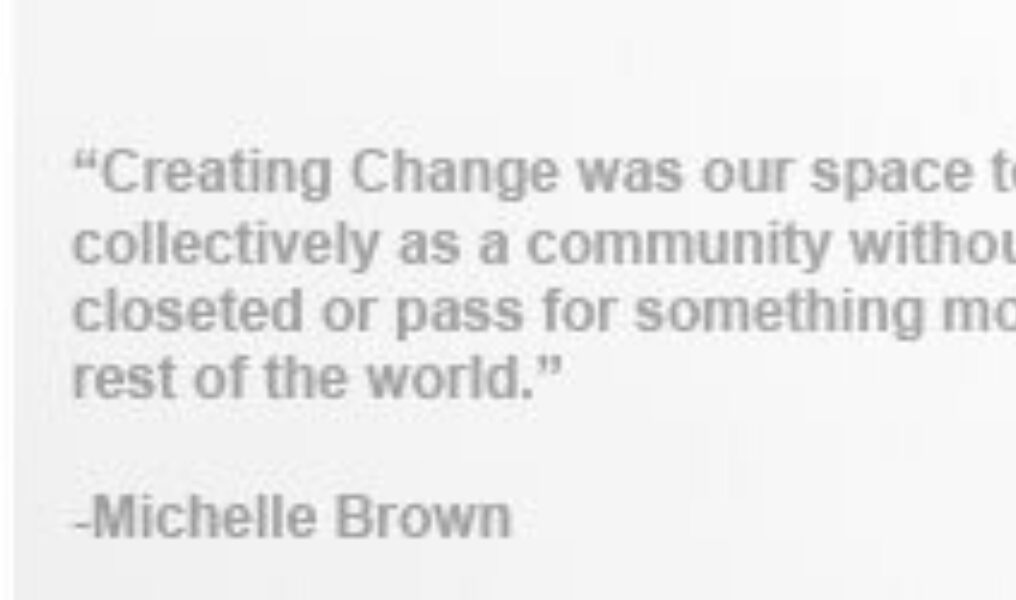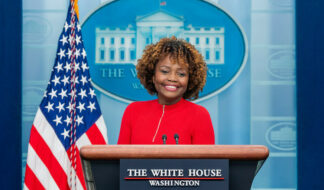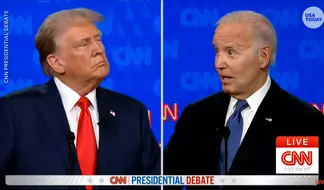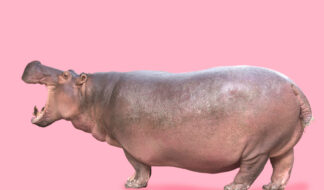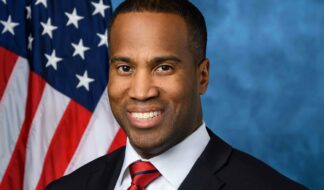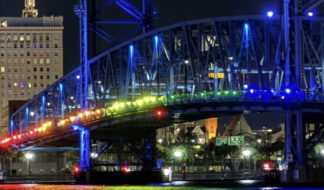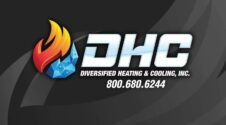
When all the furor erupted over Sen. Harry Reid's remarks that then candidate Barack Obama could be successful in obtaining the presidency because "he is light skinned" and that he spoke with "no Negro dialect, unless he wanted to have one." I was disturbed – not by his words, but by the fact that no one really discussed the truth in his words.
Although politically incorrect, the truth is that the more any person of color, or any nationality, etc. emulates Euro-centric "American" traditional values, the more palatable he/she is in our society. A sad consequence is that after a history of oppression and discrimination as the other, we – the other – still value our worth on these outdated standards resulting in keeping closeted our culture, our heritage and our identity.
As a gay African American, I am acutely aware of this duplicity and was disappointed that the reactions to Reid's remarks were more reactive to the political incorrectness than leading to a substantive discussion on the root of these institutionalized beliefs that keep us from full equality.
It is in having these hard discussions, carefully analyzing/mapping our systems, learning from our history and finding the intersections of race, gender, culture, core values and beliefs that society in general, but especially within the LGBTQIA community, can affect change that will ultimately bring about true equality.
These intersections were a recurring theme at the 22nd annual Creating Change conference attended by thousands of LGBTQIA activists recently in Dallas, Texas.
Black, white, Latino, leather, two-spirited, transgender, polyamorous, bisexual, faithful, spiritual, Pagan, young, old and all points in between, we strutted our stuff throughout the Sheraton Dallas Hotel and Conference Center. It was our space to be who we are collectively as a community without the need to be closeted or pass for something more palatable to the rest of the world. We were not "Will and Grace," Ellen or stereotyped personas of the LGBTQIA world; we were ourselves, having the hard discussions in scheduled sessions, workshops and institutes and getting really real on the biases, issues and differences that have immobilized, limited and weakened our community and continued these discussions in informal conversations in every nook and cranny. These conversations were not sugar-coated, but were frank, honest discussions in our own voice – our gay dialect.
What are some of the issues that have immobilized limited and weakened our community, and how do we overcome these roadblocks? At times, there seem to be so many that unity appears to be our "impossible dream." But throughout Creating Change, many of the major problems were addressed in ways that opened eyes and reframed our struggle for even the most seasoned activists.
The good news is that although these issues exist in our community, there was no attempt to dodge the bullet. Instead, they were woven throughout the conference. Strategies were developed and shared to address racial and social justice issues within our community that would ultimately help us find intersections within the progressive community that would engage us in the bigger struggle while building allies for our struggle.
The real take-away from Creating Change, however, were the lessons on what we can do for ourselves, to help ourselves by creating change in our own community.
Most importantly, breaking down the silos that divide our community and celebrating our community's diversity. Yes, there are rich, white, gay men that formed and by some perception still run our national agenda. Yes, there are flaws, but much like the founding fathers of the country who owned slaves and did not recognize women as equals, there were flaws, but their founding principles are the reason that we demand equality for our community.
We are a community that is stronger because of our diversity. We cannot use outdated standards on gender to oppress, separate or leave behind any part of our community. Questioning our transgender community's "legitimacy" and tolerating "separate but equal" facilities from bathrooms to ENDA is as egregious as it is for discrimination against or second-class citizenship for African Americans, Latinos, immigrants and the differently-abled.
We must step out of our political silos and seek strategies, collaborations and intersections in struggles for racial and social justice outside of the gay community. Although freedom to marry and recognition for our families are a high priority, we are not asking for special rights, but the same rights of every other citizen. This is our quest; this is our journey, but we don't have to walk it alone. We are at a crossroads and it is time to build a multi-lane equality super highway. To do this we have to bring all voices to the board room – young, old, differently-abled, people of color, the whole LGBTQIA spectrum – embracing new and old strategies, technologies and ideas.
Most importantly, we have to change the conversation, and change the language. We have to quit tip-toeing around, looking for ways to not rock the boat.
First step: Queer the Census! The Task Force has developed a sticker to put on the envelope when returning your 2010 census form. It simply identifies that we are LGBTQIA, but the ultimate goal is to make sure our community is counted in the statistics that all too often are cited, influence policy and national funding/earmarks. Visit www.ngltf.org to learn more and get your sticker.
After that, we must show up at all the intersections of our lives and "Say it Loud! I'm Gay and I'm Proud" in our real, authentic LGBTQIA dialect.
